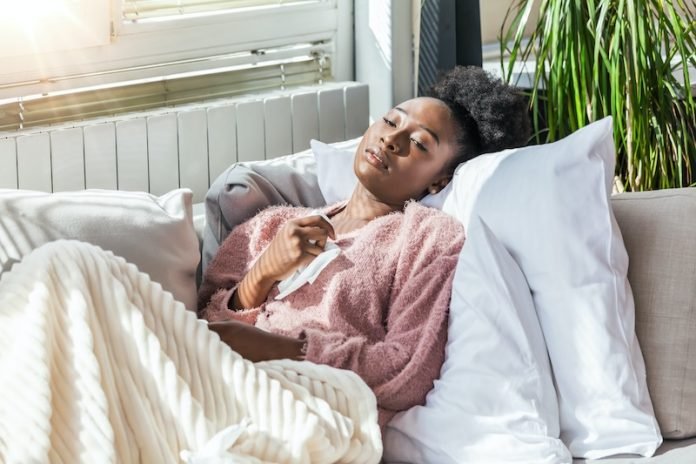
New research from UC San Francisco is giving us another compelling reason to prioritize a good night’s rest.
It turns out that poor sleep isn’t just bad for your energy levels—it could also increase your risk of atrial fibrillation (A-Fib), a heart condition that can lead to serious complications.
The Link Between Sleep and A-Fib
A-Fib is when your heart beats in an irregular way. It’s not just about the heart skipping a beat here and there; it can cause serious issues like strokes or heart failure.
According to the study published in JACC: Clinical Electrophysiology, even a single night of bad sleep can raise the chances of having A-Fib the next day by 15%.
And if you’re consistently tossing and turning at night, any A-Fib episodes you have might last even longer.
Treating A-Fib and Improving Sleep
Doctors often focus on treating the underlying health issues that could be causing A-Fib. But this study suggests that just working on getting better sleep might also make a big difference.
Gregory M. Marcus, MD, MAS, a heart doctor specializing in heart rhythm problems at UCSF Health, shares some tips for better sleep.
These include sticking to a regular bedtime, cutting out late-night caffeine or alcohol, keeping the bedroom cool, and getting up at the same time every day. He also recommends saving the bed for sleep and intimacy only, and staying active during the day.
UCSF’s Research on Heart Rhythm Disorders
UCSF has been at the forefront of treating heart rhythm disorders, and while the risks of A-Fib have been well-studied, this is the first time a direct link to poor sleep has been identified.
The study involved 419 patients from the I-STOP-AFIB trial, who kept daily logs of their sleep quality—ranging from “amazing” to “horrible”—and used portable devices to track any A-Fib episodes the following day.
In conclusion, this research adds to the mounting evidence that sleep is crucial for maintaining a healthy heart. By focusing on improving sleep quality, we may be able to reduce the risk of A-Fib and its associated health complications.
So next time you’re considering staying up late for just one more episode of your favorite show, remember that your heart might thank you for hitting the hay instead.
If you care about sleep, please read studies about herb that could help you sleep well at night, and these drugs could lower severity of sleep apnea by one third.
For more information about sleep, please see recent studies that coffee boosts your physical activity, cuts sleep, affects heartbeat, and results showing how to deal with “COVID-somnia” and sleep well at night.
The research findings can be found in JACC: Clinical Electrophysiology.
Follow us on Twitter for more articles about this topic.
Copyright © 2023 Knowridge Science Report. All rights reserved.



